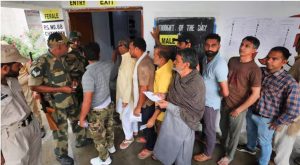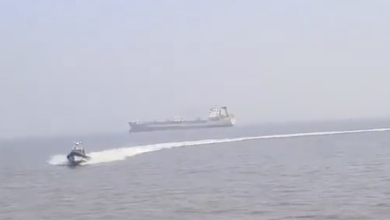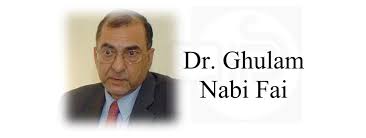ELECTIONS 2024: WHAT’S IN IT FOR KASHMIRIS?
The delimitation plan and new voting rules faced strong opposition from Kashmiris, raising doubts about the credibility of these elections. Delhi’s use of force and deception in Kashmir has historically backfired, fueling resentment and resistance among the local population. It is unlikely that this pattern will change in the foreseeable future. Although India has always viewed elections in Occupied Jammu and Kashmir, either State Assembly or Lok Sabha, from a strategic and security point of view, with a couple of objectives; firstly to legitimize its rule in the territory and secondly and most importantly to portray participation of people of Kashmir in Delhi-backed polls as a proxy for their faith in Indian government and show the world that all is well.
Although India has always viewed elections in Occupied Jammu and Kashmir, either State Assembly or Lok Sabha, from a strategic and security point of view, with a couple of objectives; firstly to legitimize its rule in the territory and secondly and most importantly to portray participation of people of Kashmir in Delhi-backed polls as a proxy for their faith in Indian government and show the world that all is well.
But contrary to Indian portrayal, Kashmiris have always perceived the state assembly elections in the occupied territory as provision of an opportunity to address their day to day affairs. For them, polls in Kashmir have nothing to do with the disputed status of the occupied territory. And as far as Lok Sabha polls are concerned Kashmiris have never shown enthusiasm in joining the bandwagon. They always believe that it is an opportunity for political stalwarts of the occupied territory to have a seat in New Delhi, instead of aligning with the voters.
Successive governments grappled with controlling the violence in the region. In August 2019, the Modi government, in line with a pledge to its right-wing supporters, unilaterally revoked the state’s autonomy, dividing it into two territories under central government authority. This move involved deploying thousands of troops, dissolving the state government, imprisoning local politicians and implementing the world’s longest internet shutdown, lasting 18 months.
Since then, the BJP has opened up the state, allowing outsiders to purchase property and register to vote in Kashmir for the first time. Over 2 million new voters have been registered, raising concerns among many who fear that the government is attempting to alter the demographic composition of the state, which currently has a Muslim majority.
The redrawing of the electoral map has sparked accusations of gerrymandering, as the reshaped constituencies appear to divide the Muslim vote in Kashmir, potentially benefiting the BJP in elections.
The constitutional changes made in 2019, coupled with the large military presence of around a million soldiers in the region, have sparked significant public discontent in Kashmir. Many Kashmiris view the Modi government’s actions as turning Kashmir into a “police state” marked by arbitrary detentions, high incarceration rates, and pervasive surveillance, instilling a climate of fear. Beyond the military presence, the revocation of Jammu and Kashmir’s special status under Article 370 has eliminated the exclusive rights of local residents over land ownership and government jobs. Subsequent laws introduced by the central government have further fueled resentment, allowing non-locals to buy land, obtain residency, and apply for government positions in the region for the first time.
These changes have raised concerns among Kashmiris that the Hindu nationalist Bharatiya Janata Party (BJP)-led central government is seeking to alter the demographic composition of the only Muslim-majority region in India. The perception among many Kashmiris is that the government is pursuing a “civilizational project” to assimilate Kashmir into Hindu India. The lack of representation of the majority community in key administrative positions and the imposition of non-local officials have reinforced this belief, with former Chief Minister Abdullah highlighting the marginalization of local officers.
Political life in Jammu and Kashmir has stagnated, with no regional elections held since 2014 and the absence of a functioning elected government since 2018. The Modi government’s crackdown on politicians and media in the region, including the arrest of mainstream politicians and journalists, has further stifled political activity. The arrests targeted not only Hurriyat leaders but also pro-India politicians, leading to a sense of betrayal among those who had engaged with the Indian democratic process.
One such politician, Waheed-ur-Rehman Para, a youth leader from the People’s Democratic Party, was once seen as a potential chief minister but was arrested under anti-terror laws in 2020. His experience of being detained and tortured has shifted his perception of the Indian state, reflecting a broader disillusionment among Kashmiris. The absence of elected representatives has left Kashmiris feeling abandoned and powerless, with political party offices in Srinagar inundated with people seeking assistance despite the limited authority of the politicians there.
Jammu and Kashmir is on the path to regaining its statehood nearly five years after the revocation of Article 370. The region has undergone significant political changes, including the downgrading to two union territories and the reconfiguration of assembly and Lok Sabha constituencies. The former state’s six parliamentary seats have been reduced to five, with one seat allocated to Ladakh. Voting in Jammu and Kashmir will take place in five phases, with the results announced on June 4, according to the Election Commission.
As per the schedule- voting has already been conducted in Udhampur on April 19, Jammu on April 26, while it were scheduled in Islamabad-Rajouri on May 7 but were postponed and rescheduled for May 25, Srinagar on May 13 & Baramulla on May 20.
In 2019, NDA won 2 seats and JKNC won 3 seats while the Ladakh (part of J&K at the time) seat was won by BJP.
For the upcoming elections BJP has fielded DrJitendra Singh from Udhampur and Jugal Kishore Sharma from Jammu.
Meanwhile, Congress has fielded Ch Lal Singh from Udhampur and Raman Bhalla from Jammu for the 2024 polls.
For the Anantnag-Rajouri seat, DPAP announced Mohammad SaleemParray will go against NC senior leader MianAltaf and PDP President Mehbooba Mufti. Earlier DPAP had announced Ghulam Nabi Azad as the candidate for the seat, however on April 17, the party changed its decision to field Parray.
G M Saroori on DPAP’s ticket will run for the Udhampur seat.
Meanwhile at the Baramulla seat, JKPC leader, SajadGani Lone will be contesting the elections.
The BJP has not yet clarified whether it will participate in the elections in Kashmir or support other candidates, creating uncertainty in the political landscape. The party’s spokesperson in Jammu and Kashmir, Altaf Thakur, mentioned that they will announce their candidates for Srinagar and Anantnag seats soon. However, he did not disclose any potential names. Former Chief Minister of occupied Kashmir, Omar Abdullah, interpreted Indian Home Minister Amit Shah’s recent statement as an indication that the BJP may not nominate candidates from Kashmir in the current Lok Sabha polls. Abdullah sees this as a sign of the BJP’s waning support in the region since the events of August 5, 2019, and challenged the ruling party to field candidates from Kashmir.
The BJP is currently hesitant to announce its candidates, possibly due to concerns about potential losses in the upcoming elections. The decisions made by the BJP on August 5, 2019, regarding the revocation of the special status of Indian Illegal Occupied Jammu and Kashmir (IIOJK) have increased resentment and alienation in the region, which could backfire on the BJP.
The BJP’s history of antagonizing Kashmiris and their state, coupled with their aspirations for a third term, puts the two regional parties of Kashmir, PDP and NC, in a difficult position. If they align with the BJP-led NDA, they risk losing their electoral base in the Valley. On the other hand, if they join the Congress-led alliance, their chances of power-sharing in a future administration of Occupied Kashmir, should the BJP return to power, may diminish significantly.
Both parties are facing a dilemma, as seen in their recent statements. Dr. Farooq Abdullah indicated in an interview with India Today (Feb 15, 2024) that his party would contest independently but hinted at a potential future alliance with the BJP-led NDA. However, his son and Vice President of NC, Omar Abdullah, quickly clarified the party’s stance, ruling out any possibility of leaving India and aligning with the BJP-led NDA. It is worth noting that the NC was previously a coalition partner with Vajpayee’s NDA, with Omar Abdullah serving as the union minister of state for external affairs from 2001 to 2002.
India has long sought to colonize Kashmir, treating it as a colony to exploit its resources and control its people. The abrogation of constitutional provisions in 2019 marked a shift towards settler-colonialism, enabling Indian settlers to take over Kashmiri lands. The new domicile law allows outsiders to permanently settle in the region, leading to land grabbing and demographic changes. Amendments to laws give sweeping powers to the Indian army to acquire more land, further disenfranchising the local population. The Indian government’s actions aim to dis-empower Kashmiris and implement a demographic change agenda, similar to what was done in Palestine. Despite claims of development, the real motive behind the abrogation of Article 370 and 35/A has been land grabbing and demographic manipulation, evident in the actions in IIOJK.
The BJP government has used repression, demographic changes, and electoral manipulation to pave the way for elections in Jammu and Kashmir. The goal is to justify its actions in August 2019 and claim that the situation in the region has normalized. However, attempts to win over pro-India Kashmiri leaders have been unsuccessful. The delimitation plan and new voting rules faced strong opposition from Kashmiris, raising doubts about the credibility of these elections. Delhi’s use of force and deception in Kashmir has historically backfired, fueling resentment and resistance among the local population. It is unlikely that this pattern will change in the foreseeable future.








